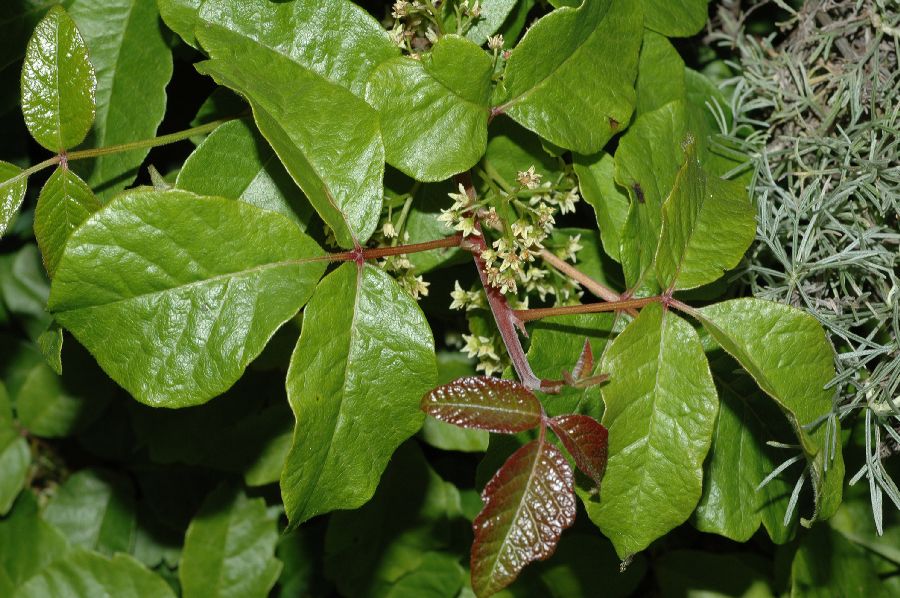References
Armstrong, W.P., and W.L. Epstein, MD. 1995. Poison Oak: More
Than Just Scratching The Surface. Herbalgram 34: 36-92.
Beebe, C M.D. Western-Poison Oak.
Braslau,R., F. Rivera III, E. Lilie, and M. Cottman. 2013.
Urushiol detection using a profluorescent nitroxide. Journal Of Organic
Chemistry 70:2:238-245.
Epstein, W M.D, and S. Hauser, 2008. A Field Guide to Poison Ivy, Poison
Oak, and Poison Sumac: Prevention and Remedies. The Globe Pequot Press.
Evans, M. 2001. Propagation protocol for poison oak (Toxicodendron
diversilobum). Native Plant Journal 2: 108-109.
Gartner B.L.. 1991. Is the climbing habit of poison oak ecotypic?.
Functional Ecology 5: 696-704.
Howard, Janet L. 1994. Toxicodendron diversilobum.
http://www.fs.fed.us/database/feis/plants/vines/toxidiv/all.html
Accessed 1 April 2013.
DiTomaso, J.M., and W.T. Lanini. 2012. Pest in gardens and
landscapes: poison oak.
Department of Plant Sciences, UC Davis.
http://www.ipm.ucdavis.edu/PMG/PESTNOTES/pn7431.html?printpage.
Stevens, P. F. 2012.
Angiosperm Phylogeny Website. Version 12, July 2012.
http://www.mobot.org/MOBOT/research/APweb/welcome.html. Accessed 2
April 2013.
Vaden, M. 2012. Poison Oak.
